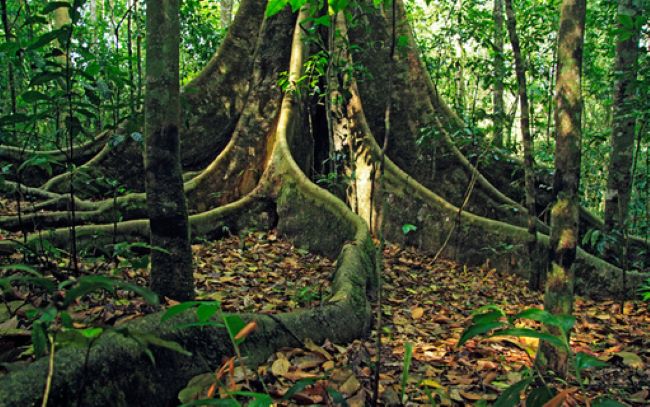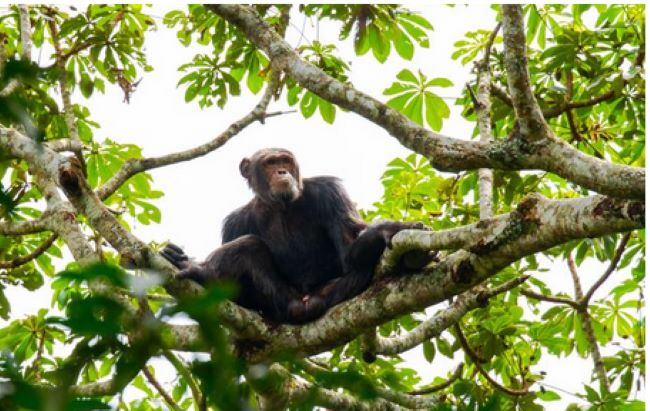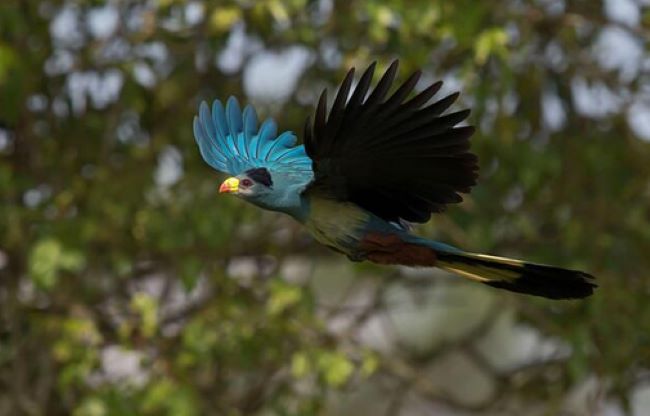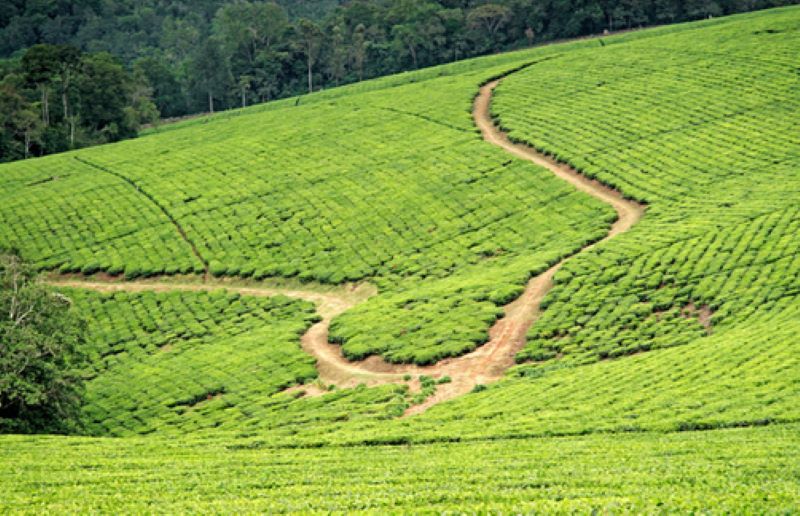The 980 sq. km tract of semi-deciduous tropical forest is home to 13 primate species including a population of over 1,450 eastern chimpanzees, Ugandan mangabeys, blue monkeys, red colobus monkeys, and L’hoest monkeys. Among other primates include the black and white colobus monkeys, olive baboons. Kibale is called the Primate Capital of the World for good reasons.
In addition to primates, Kibale’s rich in biodiversity with 230 different tree species including Bridelia micrantha that produces fruit consumed by chimpanzees. Some trees like Macaranga spp towering more than 130 feet (50m) create a dense canopy vital for survival of other species such as 335 bird species of which six are endemic to the park including the green-breasted pitta.

Chimpanzee trekking
Chimpanzee trekking excursions set out from the Kanyanchu Headquarters twice a day with morning session starting at 7am and afternoon session at 2pm. An afternoon trek can improve your chances of encountering chimps at ground level.

Visitors in a group of 8 are accompanied by Uganda Wildlife Authority rangers to hike along forest trails in search of man’s closest relatives (chimps share 98.7% of our DNA). Once located, you will spend a maximum of one hour with these fascinating great apes. You can watch them feed, groom, play, and sometimes even hunt together and use tools such as sticks to draw termites. There is a success rate of more than 90% of sightings.
Chimpanzee habituation experience
Those intending to deeply investigate the chimpanzee habits can join a chimpanzee habituation experience, a unique opportunity to observe chimpanzees from dawn until dusk.
Kibale night forest walk
Nocturnal primates including Demidoff’s galago and potos may also be seen on this guided walk that departs from Kanyanchu every evening at nightfall.
Birding
Birding inside Kibale forest offers an opportunity to search for key species as green-breasted pitta, brown-chested alethe, and little greenbul. You won’t find these outside the park in Bigodi swamp.

Attractions nearby Kibale national park
Bigodi sanctuary
Bigodi is also a great place for primate watching with 8 of the 13 primate species including the Ugandan mangabeys. There are also 200 species of birds and local medicinal plants to explore with local guides. The guided swamp walk takes around 2-3 hours to complete. If you do a morning chimp trek, you can do a late afternoon swamp walk and cultural community walk. Visit a traditional healer for his stunning metaphysics. A local brewery to see how juice, gin, and beer is made of out bananas (plantains). See how coffee is locally made and visit the basket weavers. Bigodi is a community-run conservation project by Kibale Association for Rural Development.
Sunbird hill experience
The Sunbird Hill Experience is on the boundary of Kibale national park and offers bird and butterfly sanctuary. There are more than 250 bird species, insects, reptiles, moths and hundreds of butterflies including the mocker swallow tail and Red Glider. Expert guides and a village elder will give you insight into the community conservation project and how it is changing livelihoods. A reformed poacher and retired wildlife ranger named Silver shows you the reality of human-wildlife conflict as you inspect the elephant trench and beehive fence. Visitors will need to pay about $30 donation to pre-book the tour that includes refreshments and half-day access to the natural history library and a Birders’ Lounge.
Fort Portal City
Fort Portal tourism city, the largest urban center near Kibale national park. Surrounded by rolling hills, green tea plantations, and explosion volcanic crater filled lakes. Fort Portal offers plenty of hiking opportunities including Mahoma waterfalls hike available for booking at Ataco Country Resort in Fort Portal.



